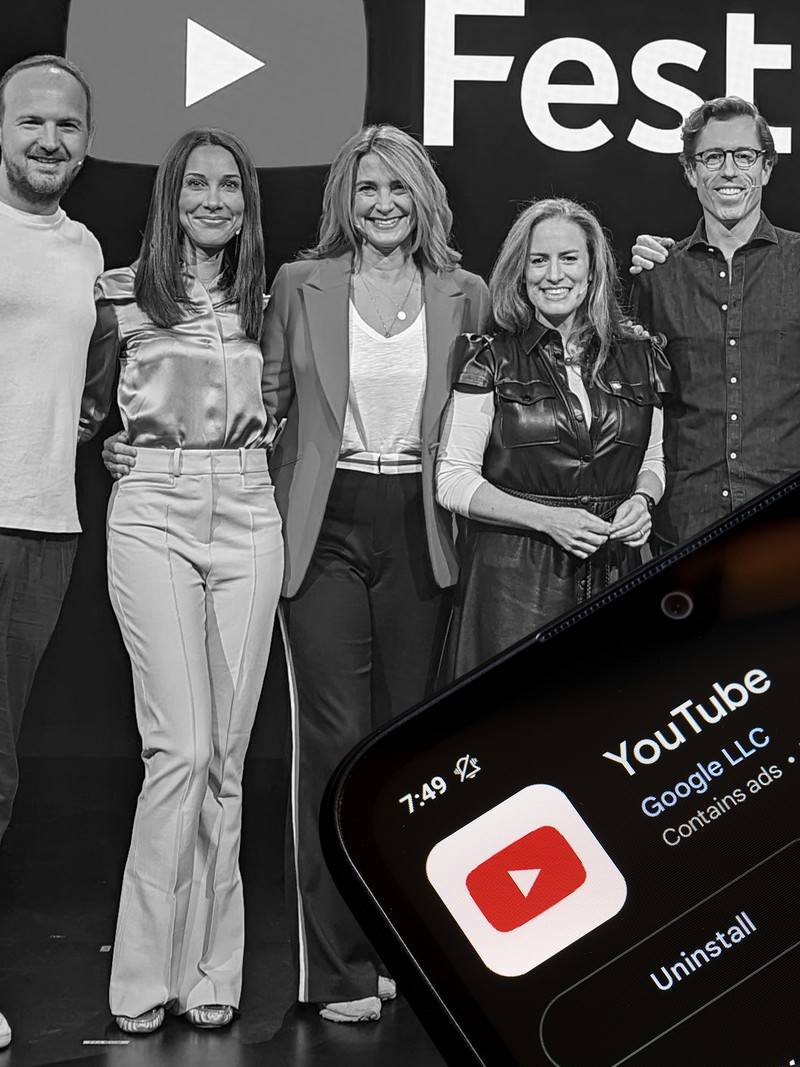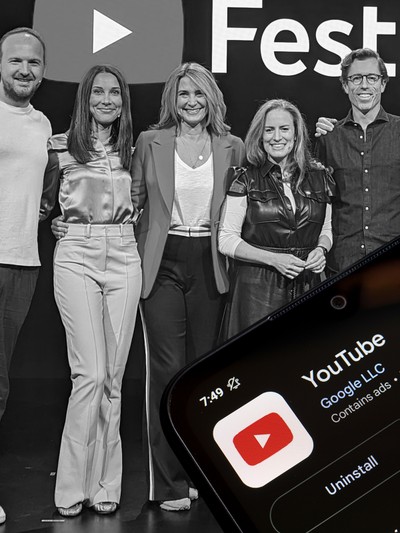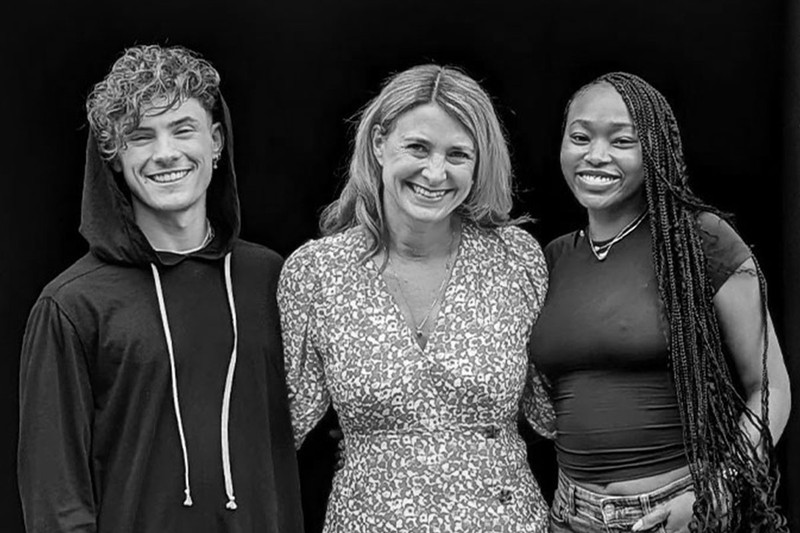

How I Made It: Alison Lomax, YouTube UK & Ireland
Google and YouTube weren't around when I was a child. That might explain why I did a politics degree – though I also loved Yes Minister growing up. My first job was at the civil service in the 1990s, working for its communications agency during the very early days of digital. It was lots of CD ROMs and intranets, but it was my first taste of digital and I could tell it was going to be huge.
Then I worked for digital advertising agencies during the dotcom boom. That was part of my desire to get more commercial experience. I had the privilege of working on the launch of the National Lottery on the internet and mobile phones, and I worked on the first ever commercial app for the App Store. I was at the cutting edge, and I loved working across different industries – I learned a huge amount.
From there I moved into tech. I went to Google in 2011 and spent 11 years there before joining YouTube. If there’s been a thread running through my career, it’s that I've always looked for industries that faced massive disruption because I have a real thirst for doing things differently. I don't like the status quo – I like riding the transformational wave.
I didn't have a team when I joined Google – I was an individual contributor. I had three or four different roles while I was there. First, I ran the creative agency team – that was very much the world I'd come from. I ran a small team, but it was probably the most pivotal time of my career because I had an amazing manager, who recognised my talent but told me I needed to work on public speaking. He wanted me to host a sales event in Las Vegas, and the thought alone was terrifying. It made me realise you have to take opportunities when they come along. This was his way of saying, ‘I'm backing you, but you have to ask for help when you need it.’ The help was some coaching and mentoring, and it turned out to be a brilliant learning opportunity. He was right: when you get to a certain level, you have to be comfortable with public speaking because it becomes a really important part of what you do, both internally and externally.
I was then encouraged to apply for a Google leadership role on its the UK management team. I had that classic pit-of-your-stomach feeling: ‘Why would I want to do that? I love the job I'm doing now.’ Again, it was someone sponsoring me and believing this was the right role for me that changed my mind. I became the first woman on the UK management team and remained on the leadership team for the next seven years. I also ran the lifestyle retail team, which was fascinating because it was during Covid, when a lot of luxury fashion and beauty brands had to lean in and accelerate the digital side of their businesses.
I’ve always had a personal development plan. I had a list of three roles that I wanted and focused on building the skills I needed to apply for them. Top of my list was YouTube MD. By the time that role came up, I had the creative and commercial experience. I’d also done a huge amount around diversity and inclusion, but one area I needed to work on was the comms side of things – doing a bit more work with press – and the political side of things, like working with key opinion formers or with politicians.
The recruitment process was open to internal and external candidates. We have an incredibly rigorous process here, so it didn’t matter that I was already part of the Alphabet family coming from Google. But I felt very confident that I had the right experience, and I was just so passionate that I knew I would do a great job. Like many women, I really struggled with imposter syndrome in the early days of my career. I once turned down a promotion in my 20s because I didn't have any senior role models. Over the years, I have really built that confidence thanks to managers, mentors and sponsors. I've been very intentional about building my network. The ‘personal boardroom’ is a brilliant framework where you have different people in your professional life who play different roles – the ones who support you, the ones you go to for strategy, the ones who challenge you etc.
Now I'm committed to mentoring and sponsoring individuals myself. We have several mentoring schemes internally, but also externally as well. For example, I'm part of Women in Advertising Communications Leaders (WACL). I'm also very passionate about women's football. When I was growing up in the 70s and 80s, there weren't girls’ football teams, so I’ve channelled all my frustration into my daughters, who both play football, and we’ve been heavily involved in Berkhamsted Raiders. I was a trustee there for four years, focusing on recruitment to turn it into one of the top UK grassroots girls’ football clubs.
I was also very involved in Women at Google for many years. After that, I started looking for another underrepresented group that I could support. The opportunity came up to be the executive sponsor of the trans employee representative representation group and through that, I met Trans in the City. I've always looked for different ways to be involved in diversity – both in and outside of my job.
As a boss, my role is to inspire the team. It’s about setting a really clear vision and creating the right environment where people can thrive. I'm not a different person inside and out of work: I'm very clear about my communication and leadership style, and everyone gets a two-pager that summarises my values and what that means for them. When you're running a big team, you don't always get to know everyone, so it's a really good way to help people understand me a bit better and what my expectations are. My favourite business book is Radical Candor by Kim Scott – it's about how to be a great boss without losing your humanity. As clear as I am about my goals and intentions, I equally want to know what motivates people and how they work. Understanding those dynamics is critical. Ultimately, I'm all about authenticity; I genuinely believe the best ideas can come from anywhere.
The mission and vision of YouTube is to make sure we are the most rewarding platform for our creators, partners and artists. When we think about the business, we think about it in four ways. The first is investing in creators, making YouTube the most rewarding place for them to build audiences through short-form and long-form content, including podcasts and lives, and to actually make money from it. These are incredible small businesses that are building their futures on YouTube.
The second area is engaging viewers and getting more people watching YouTube. We're seeing an increasing number of people watching it on their connected TV in a living room – they're watching podcasts, shorts – different versions of what they would have historically watched on TV. The third area is monetisation. We've got subscriptions, but a huge amount of revenue comes from advertising, so this means ensuring the sales team are working with all the top advertisers to drive that. The final area is foundational responsibility – making sure YouTube is a safe platform. We have our community guidelines and very strict policies, and we also work with local policymakers and the UK government. The critical thing about the vision is that it's all interconnected – everything powers each other, and one doesn't work without the others.
This year marks YouTube’s 20th anniversary. As part of it, we've done a creator consultations where we've gone out to all creators in the UK and asked them, what do you need to supercharge your business? We’ve had the most phenomenal response and we'll be sharing the findings in the next couple of months. YouTube is a big part of the future of the creative industries, and I know it can really help the soft power the UK has in the world.
Every working parent experiences challenges around getting the balance right. I personally find it frustrating when you hear execs say everything’s perfect. The reality is there are some days and weeks where it works better than others. The most important thing is that you have options and are somewhat in control, depending on what your partner’s circumstances are or if you don't have a partner, and the different ages that your kids are at. I’ve worked flexibly – between three and four-and-a-half days – for 15 years. I've only recently gone back to full time because both of my kids are at secondary school now. My husband is a freelance film producer, which means that he is away sometimes. We’re constantly looking at who's in the country and making that work. I've been very grateful that I've been able to work flexibly because that has given me the opportunity to be more involved with the kids.
I've seen a huge amount of change in this industry over the last 13 years. The leadership team I currently sit on within YouTube is split 50:50 between men and women. Some of the challenges that remain around gender equality are rooted in STEM subjects and education, and ensuring that girls are studying maths and sciences. But it’s worth remembering that not studying those subjects doesn’t mean you can’t work in tech. I'm not a coder, I'm not an engineer – there’s a difference between commercial and technical roles.
I've always had a real thirst for learning and genuine curiosity. Being really interested is critical for success, because if you demonstrate how passionate you are about something, that gives you opportunities to work with other teams. There are a lot of women who hate the word ‘network’ – that sort of artificial building of relationships – but it’s critical in business. And it can be incredibly positive. I would really encourage everyone to think about who's in your network and all the different roles those people play.
Visit YOUTUBE.COM
DISCLAIMER: We endeavour to always credit the correct original source of every image we use. If you think a credit may be incorrect, please contact us at info@sheerluxe.com.


